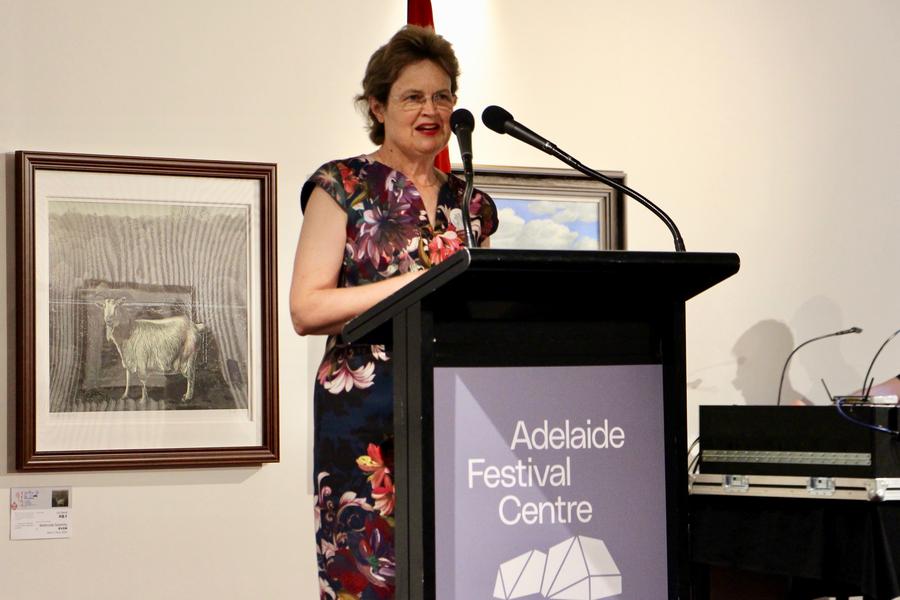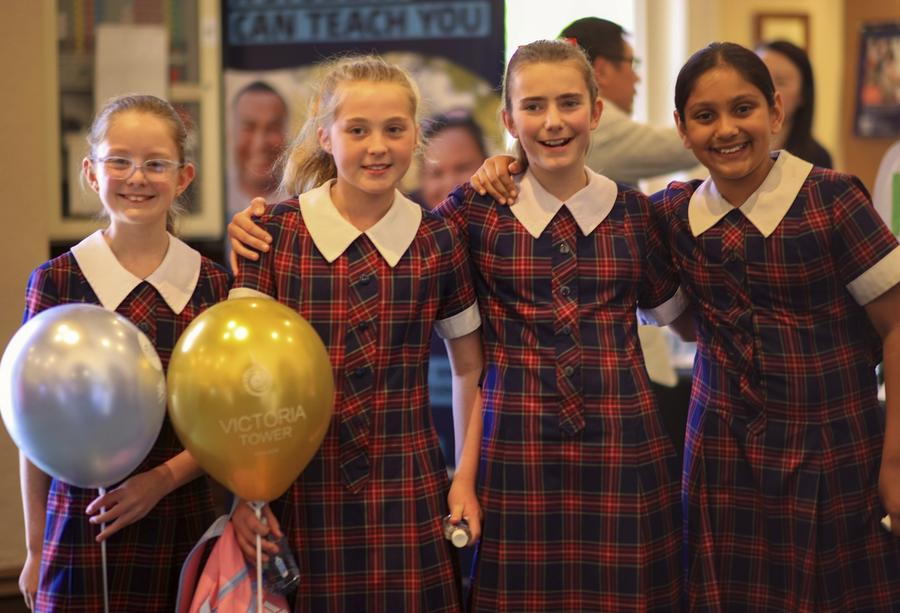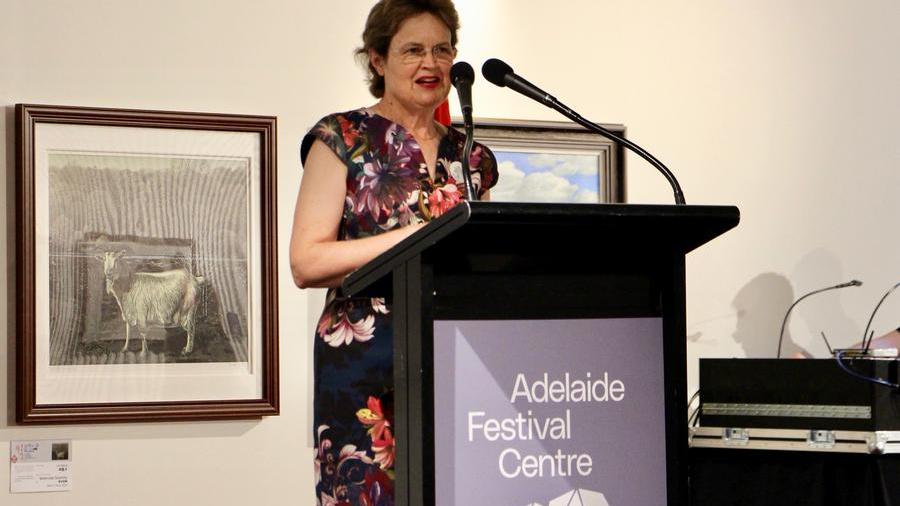Frances Adamson, governor of South Australia, delivers a speech at the opening ceremony of "China Today" arts week in Adelaide, Australia, on Jan. 28, 2023. (Photo by Lyu Wei/Xinhua)
"If we look at the history of our relationship, there have been ups and downs, and that's why that process of stabilization has been so important," said Governor of South Australia Frances Adamson.
by Xinhua writer Xu Haijing
BEIJING, June 15 (Xinhua) -- China and Australia have made efforts to stabilize bilateral relations by managing their differences and South Australia can do its part, Governor of South Australia Frances Adamson said in a recent interview with Xinhua.
"All that time I was in diplomacy, I've observed that we've needed to manage differences. And both sides have been making efforts to do that. And then there's the area of opportunity," said Adamson, who served as the Australian ambassador to China from 2011 to 2015 and as the secretary of the Department of Foreign Affairs and Trade from 2016 to 2021.
"It's an area that both of our leaders have identified as well. And it's an area, of course, where South Australia can make a contribution," Adamson added.
Adamson said both South Australia and its Chinese sister province of Shandong are significant agricultural regions, so some of the relationship naturally touches on food.
She noted that Tsingtao Brewery, a famous Chinese beer brand, uses quite a lot of South Australia's malting barley. Additionally, South Australia produces premium wine, which has been very well received by Chinese consumers.
"China is a very dynamic place and what consumers want changes over time. But I think we're quite confident ... that Chinese consumers will be very happy again to drink Australian wine," she said.
Many South Australian businesses have participated in the China International Import Expo held every November in Shanghai, Adamson told Xinhua.
"Planning is underway. The state government is working with South Australian companies to see who will attend this year. But I think it's now permanently in the calendar," said Adamson.
Participants pose for a group photo before the 2023 Australian Voice Chinese-Singing Competition in Adelaide, Australia, Nov. 18, 2023. (Photo by Tony Ni/Xinhua)
She also mentioned proudly that the China-Australia Free Trade Agreement was signed in 2015, which was during her tenure as Australian ambassador to China.
Data from the South Australian government showed that two-way merchandise trade between South Australia and China in the 12 months leading up to February 2024 amounted to 6.4 billion Australian dollars (4.25 billion U.S. dollars).
During this period, the state's imports from China totaled 2.83 billion Australian dollars (1.87 billion dollars), marking a 12-percent increase, and motor vehicles and power generation equipment were among the primary imports.
Adamson said that during her visit to China in April, she noticed the significant emphasis China places on green energy and decarbonization.
"We have an abundant wind and solar (source in South Australia)," she said. "I think there are lots of opportunities."
"China is doing very well in terms of manufacturing electric vehicles, charging stations, and a whole range of equipment that will help us all across the world decarbonize."
Adamson said Chinese students studying in Australia are "ambassadors." As the patron of Study Adelaide -- a government program promoting South Australia's international education -- and a graduate of the University of Adelaide, she met some "wonderful alumni" in China who returned home to "continue to help connect us, whether that's through trade, investment, or people-to-people contacts."
"If we look at the history of our relationship, there have been ups and downs, and that's why that process of stabilization has been so important. But I saw, as soon as I was sworn in as governor, just how strongly felt the relationship was on the part of South Australians," said Adamson.






 A single purchase
A single purchase









